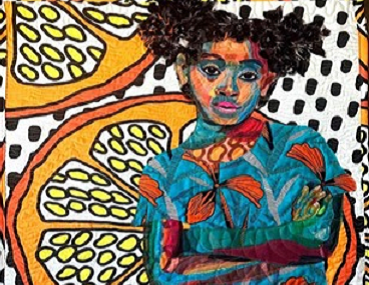
Feminism and sexuality: It’s a power thing…
Written by Ms Vanessa Mpatlanyane
January, 27, 2021
‘Feminists, feminism, feminine’ – three scary words. Add ‘sexuality; pleasure; desire’ to the mix and you pretty much have a ghost house on Halloween-scary! For some these words should never go together. Ironically these are one of the most consistent themes in feminist discourse.
In many communities around the world not only is talk about sexuality shunned, but talk about women and their sexuality is absolutely avoided. Whether it be conversations about birth, sexual desire, sexual power, birth control or something as regular as menstruation and the vagina, talk concerning women as a sexual(ised) being is just off the table. From a young age, the female is seen as a precious little delicate being – much closer to the angels then men.
Because of this perception, women have been limited in their expression and decision-making when it comes to their own sexuality. For many women, it remains uncomfortable to talk of their sexual ill-health and seek help when they need it. The same is true for desire, pleasure and sexual preference. Expressing pain in childbirth, or living through postpartum depression, not to mention infertility, is also still considered a sign of weakness in many circles. These examples and the harm that has resulted from them are just a few reasons why the feminist movements have continued to have women’s sexual health at the centre of their advocacy. Although feminists have varying views on what sexuality is and means for women, they all agree that sexuality and sensuality are very much part and parcel of the female experience at all ages. Simply put, pop culture has it all wrong – it is not just men that need to prioritise their sexual wellbeing.
At different developmental stages, women experience and explore their sexuality, although in different ways. In the earlier years a little girl may realise that she is different from the little boy she shares crayons with. She may also start to question why certain parts of her body are not to be touched by anyone; or realise that it’s easier and less messy to pee sitting rather than standing. As she grows older formal education, peer-influence and her parents may emphasize sexual purity until she marries. The media and really hot guys may encourage nudity and sexual intercourse in the name of self-expression. Either way, her ideas and decisions about her nature as a sexual being will never be hers alone – whether she is aware of it or not.
Feminists around the world typically advocate for each woman to have a choice, to have options, even though they realise how messy decision-making can be. Discourse on young and old women’s sexuality from a feminist perspective mainly focuses on the idea of empowerment. What a sexually powerful girl or woman looks like is debatable. However, to be empowered, ideally, would mean that every girl and woman has the ability to take ownership of, and negotiate on her terms, matters that directly affect her sexuality at both an individual and social level.
Feminists may disagree on the nitty-gritties of female sexual empowerment and what that power is, but they all are in favour of empowerment per se. In other words, there is general consensus that all women should reign over their sexuality and possess the freedom to decide who they entrust with that power. To put it simply, women should
- safely interact with their personal sexual desires, pleasure or even the prospect of pleasure unapologetically & without stigma,
- explore their own values, perceptions and presuppositions about the body and sexuality
- create their own sexual expectations and boundaries
- investigate & live up to their convictions and view of the world because it impacts how they see and experience their own bodies and
- formulate and express their sexual goals proudly.
There is no one way all women experience, explore, talk about or interact with sexuality. Not at an individual nor social level. It is this recognition that encourages feminists to continue to advocate for women’s sexual rights, protections and privileges as a collective. You may not agree with what they say or do, but this conversation about sexuality is a conversation about the wellbeing of humanity as a species. Sexual health and wellbeing in women and men is important. In the most basic sense, it is sexual health that has aided us to fight off species extinction.
Ubusha Bami futhi yimi lo – My youth and this is me! ©